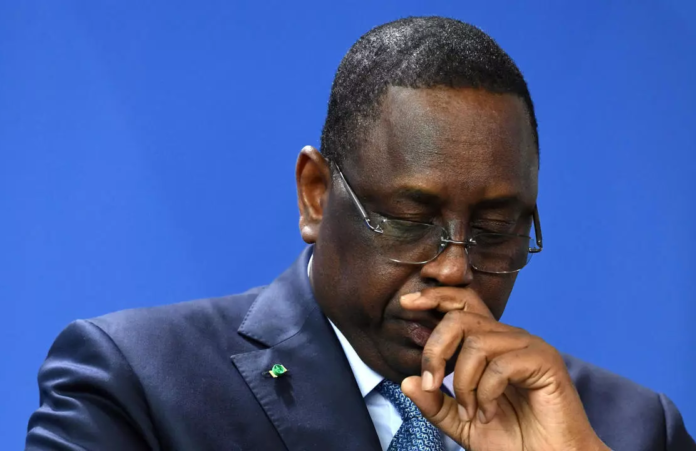OPINION
For Macky Sall, A Tarnished Legacy
By Cherno Baba Jallow
After Senegalese voters elected a new president Bassirou Diomay Faye on Sunday, the incumbent Macky Sall will be departing office soon. He would have served 12 years in power. An extended stay was out of the question as the constitution mandates a maximum of two consecutive terms only.
Sall came into the presidency in 2012, vowing to shorten presidential terms from seven to five years, a radical break from the routine of Senegalese electoral politics. He initially failed in his campaign promise. It would require a referendum in 2016 for the five-year mandate to take constitutional effect.
The idea of a five-year presidential tenure in Senegal did not start with Sall. Up until 1991, Senegal had a five-year electoral cycle. And the constitutional referendum in 2001 had been the catalyst for a return to the years prior. But to have a major presidential aspirant in Sall, openly advocating for a lesser number of years for the presidency, and at a time when leaders in Rwanda and the Democratic Republic of Congo were advocating for longer stays, was a remarkable feat on his part. It conveyed a sense of urgency pursuant to the democratic needs of a citizenry hungry for a change in the old order. This was a bright signal to how Sall would govern his country.
Indeed, he came brimming with ideas and policies on re-making Senegal, bringing more national development and broadening its impact beyond the capital. He brought in lots of new infrastructure: roads, stadiums, a railway in and around the capital, power grids to enhance electrification in towns and villages. He envisioned and worked towards a thriving Senegal through massive investments in agriculture, infrastructure, and tourism. He championed for home ownership for Diaspora Senegalese.
And Sall became a champion of democracy. He helped contribute immensely to the defeat of the Gambian dictator Yahya Jammeh and the return to constitutional rule in The Gambia at a time when Gambians could not finish the job on their own.
For Sall’s ambitious national development initiatives in his country and his visionary leadership, many Africans admired him from afar. He was the leader they wished they had in their countries. Sall, and by extension, his country Senegal, exemplified an admirable story, a symbiosis of visionary leadership and flourishing society. Thus, the just-concluded elections should have ushered a glorious end to the Sall presidency, the final curtain of what, in the main, had been a successful tenure in office.
Until Sall bungled it. In the last few years, he lost his democratic moorings and brought Senegal to the brink of total anarchy. In the on-again, off-again mass protests over his muted intentions on a third-term mandate, several political opponents were arrested and detained, security forces killed scores of people. He grew increasingly disconnected from the everyday realities of his constituents: poverty, joblessness, income inequalities and political uncertainty.
Sall failed to heed the lessons of history. Apart from Senegal’s first president Leopold Sedar Senghor, who willingly relinquished power, his successors had to deal with an increasingly frustrated but vocal, civil society, barking at the slightest hint of leadership trickery. The “Sopi” (a Wollof word for change), was a rallying slogan among the large crowds during then-candidate Abdoulaye Wade’s successful presidential run against Abdou Diouf in 2000. Between 2011 and the 2012 presidential elections, there were huge protests against Wade’s plan to extend his rule. Out of the crucible of these citizen protests, emerged a coalition of parties led by Macky Sall. He eventually defeated his former boss and became president.
Sall’s reticence on whether he would seek a third term was an intentional wait-and-see gambit. He was hoping for something, an opportunity, or an excuse to extend his stay in power. And when he finally announced that he would not seek another mandate, he had already figured out (at that moment) that there was nary a chance for his plans to succeed. But he later postponed the elections due to alleged improprieties in the way some presidential candidates’ applications were handled. It was all a ruse.
As he enters his final days in office, Sall should begin a candid self-assessment. And it will show this: his own maneuverings did him in. His party’s candidate, too. The former prime minister Amadou Ba, Sall’s preferred successor and party candidate, suffered a comprehensive defeat. He was on the ballot, but this election was not about him as much as it was about his former boss. Ba’s abortive, if unappealing, candidacy, was an unsurprising casualty in the total repudiation of Sall’s wages of political deceit in the last few years of his presidency.









